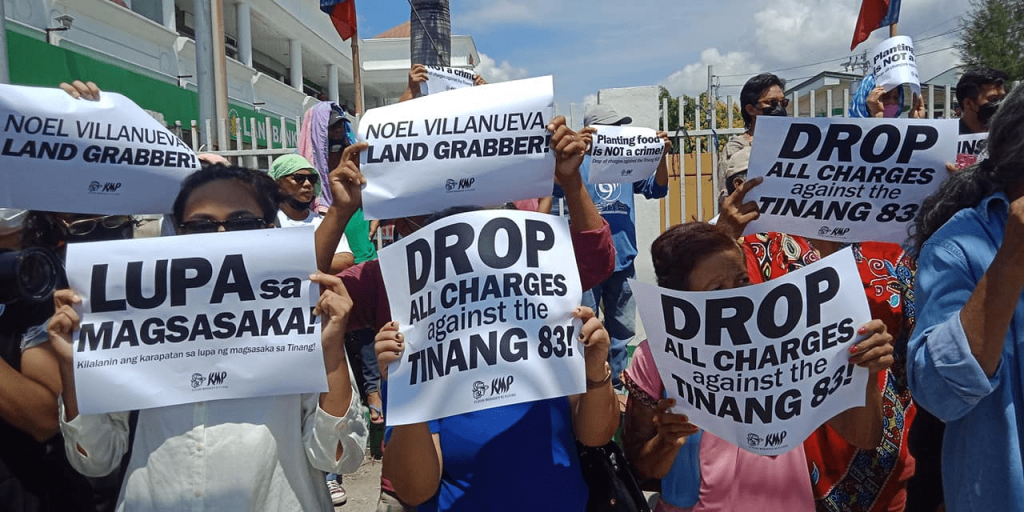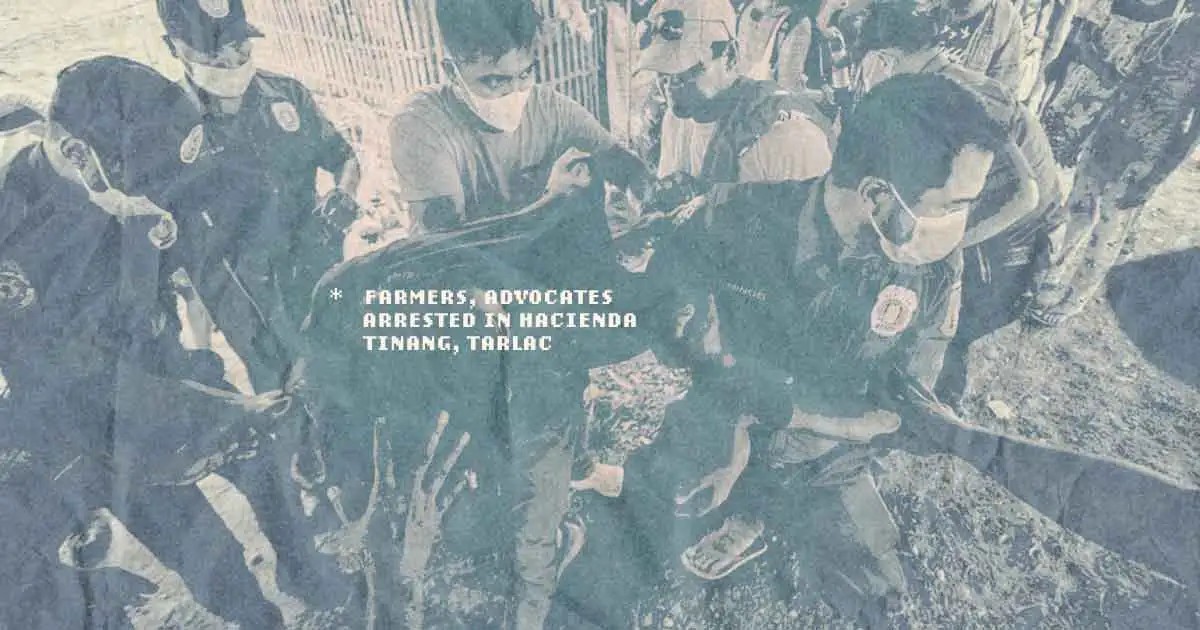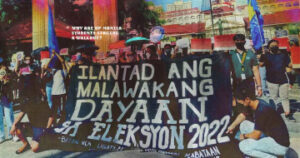One of the Tinang 83 opened up to us about his ordeal.
For 27 years, the farmers of Concepcion, Tarlac, have been in an ongoing land dispute. Things came to a head last June 9, when the Concepcion town police arrested and detained over 90 people. The detainees included artists, farmers, journalists, and land reform advocates. The police released some the next day, but 83 people (including journo Terence Replente) remained in detention until June 12.
FreebieMNL was able to interview Replente, albeit virtually. Terence Replente is a journo who covers the Arts & Culture beat. He went to Hacienda Tinang on behalf of SAKA (Sama-samang Artista Para sa Kilusang Agrario).
“SAKA links artists and cultural groups with the peasant struggle,” Replente explains. “It campaigns for free land distribution, genuine land reform, and social justice.”
What follows is a transcript of our correspondent Aram Lascano’s interview with Repelente. (Ed’s note: Their conversation was edited for brevity and clarity.)
Terence Repelente: ‘I thought we were going to die’

FreebieMNL (FM): Why were you there?
Terence Repelente (TR): I wasn’t on assignment. I was there as a peasant and agrarian reform advocate. I was there to show solidarity, learn, and observe the farmers’ cultivation activity.
FM: How did the program at Hacienda Tinang start?
TR: The farmers prepared breakfast for us when we arrived. Then we sat down for a briefing. The farmers’ leader Felino Cunanan talked about their experiences. Cunanan is the head of MAKISAMA – Tinang, the Tinang farmers’ organization. He told us why they’ll be doing the bungkalan (cultivation activity).
FM: The local police arrived during the program and apprehended everyone. Tell us about what happened.
TR: Despite what the police said, it was a peaceful activity. The police showed up while the farmers were digging. They wanted to arrest Cunanan and the tractor driver. But they didn’t have a warrant at the time. The cultivation activity stopped and the police left. We thought that was it. But after lunch, they came back with reinforcements: Soldiers armed with rifles.
This time, they were more aggressive. Some policemen taunted us by pretending to pull out their guns. As more policemen showed up, we found ourselves cornered in a hut. We had no idea what they were going to do with us. I thought we were going to die.
They got inside the hut by destroying the door. They hauled us to the police mobile one by one. Some of us got bruises. They even hit a female farmer in the chest. We were red-tagged and yelled at. Altermidya’s live coverage shows exactly what happened.
The thing was, they didn’t have a warrant of arrest. Nor did they tell us why we were being apprehended. There was no commotion before they arrived.
Terence Replente: ‘For me, it was a type of torture’
FM: What happened next?
TR: They didn’t follow standard operating procedures. First, it was illegal for them to jail us because there were no cases filed. We also didn’t get medical exams. They didn’t ask who, if any, had comorbidities.
For the first two days, we slept in the station’s parking lot. They interrogated some of us even if we didn’t have any lawyers present. Some of the questions they asked were, “Where are you from?” and “Who’s your leader?”
On the third day, we were placed in a tight prison cell. As far as I could tell, it was about six by three meters. We were with other inmates who weren’t part of our group. It was impossible to sleep at night because there wasn’t enough space for everyone to lie down. We even had to sleep in shifts. Some would stand so other people could sit, and sitting wasn’t even that comfortable. The toilet was also close to where we were.
It was hot as hell in there. Aside from being jam-packed, it didn’t have proper ventilation. Some of the women in our group fainted and threw up because of the condition of their cells.
For me, it was a type of torture. My memories of the dispersal and the jail cell still haunt me.
Terence Replente: ‘Connect the dots’

FM: They say the arrests were because the program involved destroying sugar canes. But what actually happened?
TR: Tinang is a town in Concepcion, Tarlac. For 27 years, pinagkait sa farmers yung lupa nila even if they have complete papers. They also have a Certificate of Land Ownership Award. The Department of Agrarian Reform (DAR) issued that in 1995. It’s also in the Registry of Deeds.
Due to a series of crises, including the pandemic, the farmers collectively decided to plant vegetables. They couldn’t even partake of sugar canes planted by a cooperative that laid claim to the land. Not even if they have a CLOA.
In 2018, the DAR issued an order to install farmers in the area. But the cooperative says farmers don’t have rights to the land. But for 27 years, others, including the cooperative, benefited from the land without paying the farmers.
Us artist-advocates weren’t there to make trouble. We were there to show solidarity and learn from the farmers. Their fight is everyone’s fight. As long as you eat, you have a responsibility to stand with them. As for why we were apprehended even though the farmers own the land in Tinang, it’s up to you to connect the dots.
Terence Repelente on the Tinang 83’s next steps

FM: How has this experience shaped your thoughts on our justice system?
TR: The Hacienda Tinang incident proves widespread and systematic exploitation of farmers is real. But being able to post bail is a win, albeit a small one. Also, we’re inspired by the support that we received while we were behind bars. Finally, the DAR released a formal list and notice that reaffirmed the Tinang farmers as the rightful owners of the land. It’s sad this incident had to happen for the CARP Law to be implemented.
FM: What are your next steps?
TR: We will continue to fight for the distribution of land in Tinang, urge the DAR to formally install farmer-beneficiaries at the soonest possible time, and campaign to drop all the trumped-up charges against us. I don’t regret being there that day. If anything, the incident only affirmed my decision to be an activist and peasant advocate. I’ll continue to write for, stand with, and join farmers in their struggles. Their fight for genuine agrarian reform and other rights continues.
Disclaimer: The opinions expressed by Terence Replente in this article don’t reflect those of its author. They don’t reflect the opinions of FreebieMNL, its parent company, and fellow businesses.
Featured Image Daniella Sison
Featured Image Photo by Mark Saludes






















